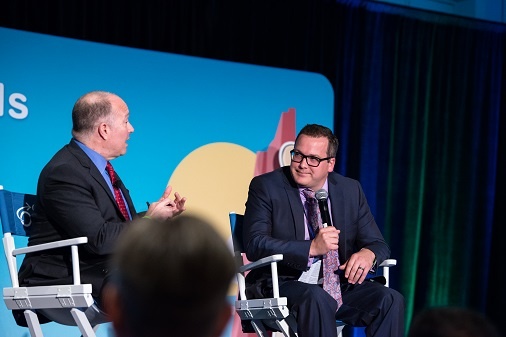The sales role play session at Schnizzfest this year was a lot of fun, but more importantly, we uncovered a lot of material for you to consider the next time you’re out there selling. For now, I’d like to review three key takeaways from the discussion.
Fill Up Your Pockets
Not every meeting goes as planned — and that’s not necessarily a bad thing. Sometimes you learn the person you’re speaking with isn’t the decision maker. When this happens, should you write the meeting off and walk away, or should you pay attention and listen?
Sometimes the person you’re meeting with gives you some good stuff, so hold on to the material for another time. Maybe it’s just me, but I try to “fill up my pockets” with as much information as I can during a first-time appointment (FTA). This is the time to do it, especially when the next meeting is with the decision maker (or at least one of them).
I feel like too many salespeople walk out of FTAs with empty pockets. Don’t give everything away too early. You’ll miss out on additional sales opportunities if you do.
Walk Them Through The Logic
Remember: With prospects, use business logic, not sales logic. Your goal should be to guide them through their decision making. Walk them through every step. Ask them questions along the way. Figure out where they could go wrong and assist them. For example, if they ask about proposals, point out why making decisions on proposals alone can present problems. Provide them with insights based off of your own experiences.
Stop With The Agreement Reviews
We at TruMethods aren’t against agreements. In fact, simply put, you should have an agreement in place with every customer. What does concern me is when MSPs set time aside during the sales process to review agreements with prospects. Many agreements aren’t signed during the agreement review step, according to the members we’ve polled.
Yes, at some point, your prospects will need to review the documents you’re asking them to sign; however, you don’t need to turn into a big deal for them (even if it’s a big deal for your company). Instead, send them the agreements ahead of time, and encourage them to ask any question they may have during the next scheduled meeting.
Explain to them the situation: “My company has 40 customers, and not one of them had an issue with the agreement before signing it. The document is pretty straightforward.” Make sure you point out what an agreement can or can’t do for them in the decision process. You don’t want them comparing your agreement with a competitor’s document.
Remember: Sales is a process. There are times when meetings won’t go as planned, and that’s okay. Learn from every situation, and fill your pockets with as much information as you can (don’t give it all away upfront). When you do that, you’ll be able to guide prospects with business logic, not sales logic. One more thing: Stop with the agreement reviews. Don’t make signing the agreement into a bigger deal than it has to be.


